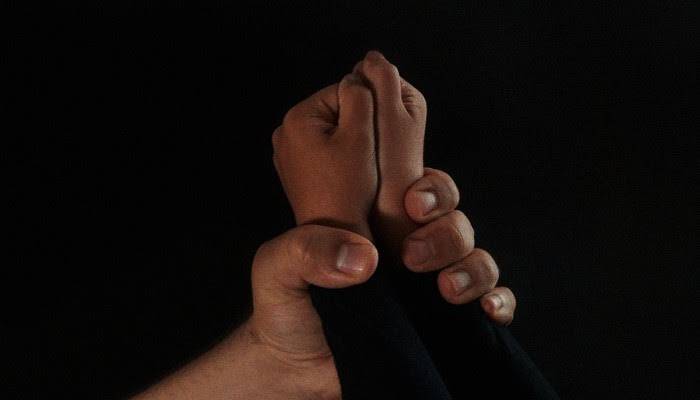
Well-meaning voices have often commented on the lack of protection for the most vulnerable segments of Pakistani society. However, it seems that violence against the vulnerable is so ingrained and accepted in society, that by the time policy-makers and law enforcement are convinced of the need to act on one issue, another three make their presence felt – in the most horrific ways possible.
The particulars of the new case from Rawalpindi are such that a horror film pales in comparison. Rawalpindi Police, we are told, arrested the leader of an international gang who used to live-stream abuse of children on the dark web. But what makes this case particularly chilling is the fact that the suspected kingpin of this gang, Sohail Ayaz, was already a convicted offender who was earlier deported from both Britain and Italy after serving jail sentences for “similar crimes”.
The lesson for us from this incident is as follows. We already knew of the unspeakable levels of danger for young children from undiscovered criminals. But now it appears that, due to the apparent lack of a centralized database for such offenders, we are also entirely incapable of identifying known criminals who already have a long list of crimes in countries with far more robust law enforcement and legal structures. And so, the suspect Sohail Ayaz, who has confessed to raping 30 minors, was working with the Khyber Pakhtunkhwa Governance and Policy project as a consultant on a hefty salary along with other benefits. And all of this after he had already been convicted and deported from abroad!
There are those who would interpret this as a special failing of the PTI-led government. But perhaps it would be shortsighted to reduce the issue to one of partisan mudslinging. Such efforts were also made before, in the aftermath of the horror in Kasur, when a campaign was directed against the then PML-N government in an effort to link government figures in some particular way to the serial killer. Such talk is harmful, not just in its inaccuracy, but also in how it distracts from the actual problem. The failure is obviously institutional and social – and far more deep-rooted than the folly of one administration.
However, what would be truly criminal on the part of the government, from this point forward, is a failure to implement some institutionalized practices for identifying those who inflict such unspeakable torture on children. A good start would be a database maintained on a federal level to identify and restrain known criminals guilty of crimes against children – whether convicted in Pakistan or in other countries. And we need an honest conversation across the country on how law enforcement, parents, teachers and society in general can be more vigilant in rooting out those who live amongst us and inflict such horror on children – something which leads to concrete policies and practical change on the ground.
The particulars of the new case from Rawalpindi are such that a horror film pales in comparison. Rawalpindi Police, we are told, arrested the leader of an international gang who used to live-stream abuse of children on the dark web. But what makes this case particularly chilling is the fact that the suspected kingpin of this gang, Sohail Ayaz, was already a convicted offender who was earlier deported from both Britain and Italy after serving jail sentences for “similar crimes”.
The lesson for us from this incident is as follows. We already knew of the unspeakable levels of danger for young children from undiscovered criminals. But now it appears that, due to the apparent lack of a centralized database for such offenders, we are also entirely incapable of identifying known criminals who already have a long list of crimes in countries with far more robust law enforcement and legal structures. And so, the suspect Sohail Ayaz, who has confessed to raping 30 minors, was working with the Khyber Pakhtunkhwa Governance and Policy project as a consultant on a hefty salary along with other benefits. And all of this after he had already been convicted and deported from abroad!
There are those who would interpret this as a special failing of the PTI-led government. But perhaps it would be shortsighted to reduce the issue to one of partisan mudslinging. Such efforts were also made before, in the aftermath of the horror in Kasur, when a campaign was directed against the then PML-N government in an effort to link government figures in some particular way to the serial killer. Such talk is harmful, not just in its inaccuracy, but also in how it distracts from the actual problem. The failure is obviously institutional and social – and far more deep-rooted than the folly of one administration.
However, what would be truly criminal on the part of the government, from this point forward, is a failure to implement some institutionalized practices for identifying those who inflict such unspeakable torture on children. A good start would be a database maintained on a federal level to identify and restrain known criminals guilty of crimes against children – whether convicted in Pakistan or in other countries. And we need an honest conversation across the country on how law enforcement, parents, teachers and society in general can be more vigilant in rooting out those who live amongst us and inflict such horror on children – something which leads to concrete policies and practical change on the ground.
